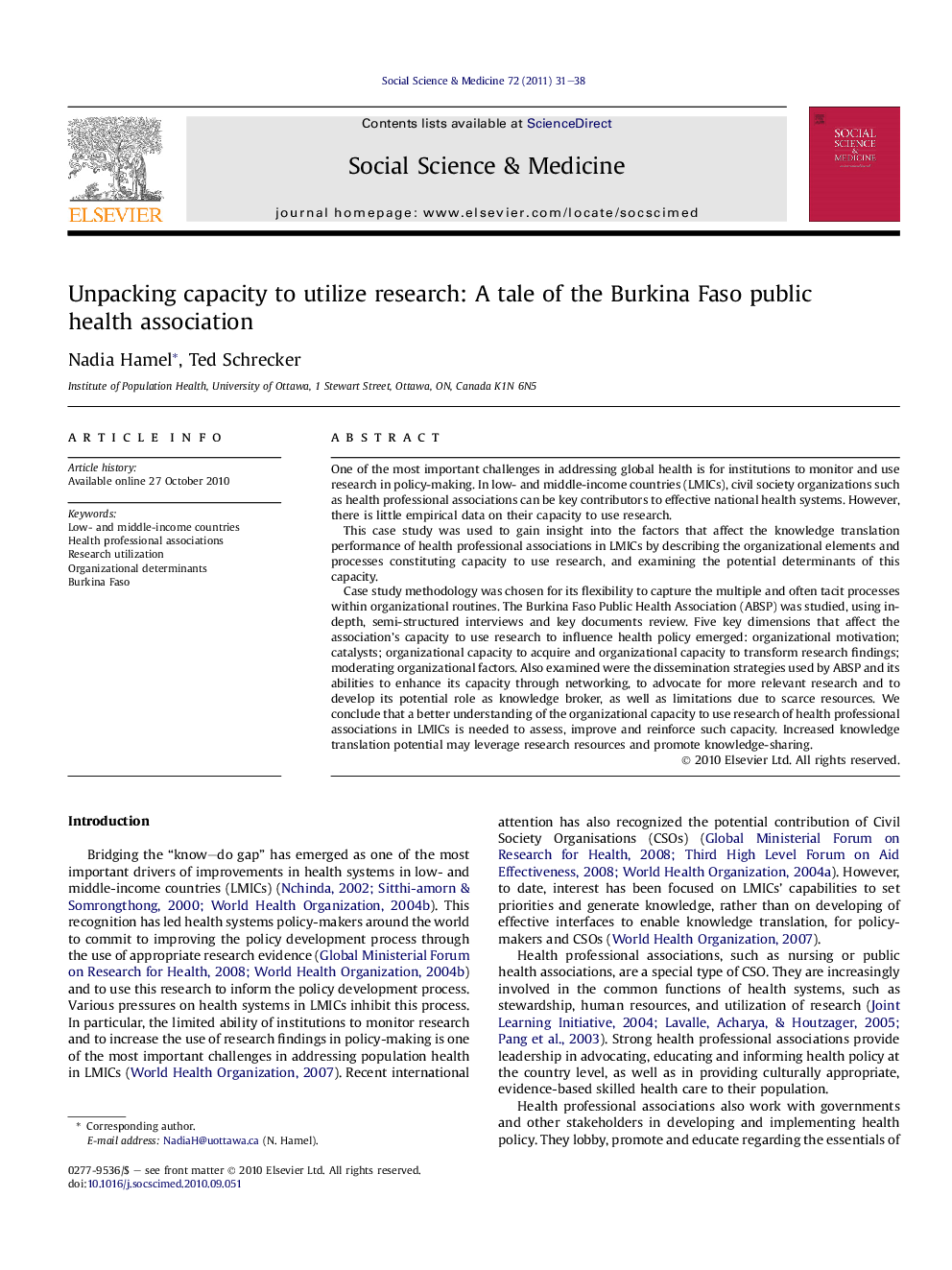| Article ID | Journal | Published Year | Pages | File Type |
|---|---|---|---|---|
| 952838 | Social Science & Medicine | 2011 | 8 Pages |
One of the most important challenges in addressing global health is for institutions to monitor and use research in policy-making. In low- and middle-income countries (LMICs), civil society organizations such as health professional associations can be key contributors to effective national health systems. However, there is little empirical data on their capacity to use research.This case study was used to gain insight into the factors that affect the knowledge translation performance of health professional associations in LMICs by describing the organizational elements and processes constituting capacity to use research, and examining the potential determinants of this capacity.Case study methodology was chosen for its flexibility to capture the multiple and often tacit processes within organizational routines. The Burkina Faso Public Health Association (ABSP) was studied, using in-depth, semi-structured interviews and key documents review. Five key dimensions that affect the association’s capacity to use research to influence health policy emerged: organizational motivation; catalysts; organizational capacity to acquire and organizational capacity to transform research findings; moderating organizational factors. Also examined were the dissemination strategies used by ABSP and its abilities to enhance its capacity through networking, to advocate for more relevant research and to develop its potential role as knowledge broker, as well as limitations due to scarce resources. We conclude that a better understanding of the organizational capacity to use research of health professional associations in LMICs is needed to assess, improve and reinforce such capacity. Increased knowledge translation potential may leverage research resources and promote knowledge-sharing.
Research highlights► The capacity to acquire, manage and apply research is essential for all health systems actors, including health professional associations. ► The notion of “absorptive capacity” is useful for the conceptualization of organizational capacity to use research. ► The organizational capacity of LMICs health professional associations to use research is jeopardized by scarcity of resources. ► Shifting the attention in research utilization towards an organizational lens could aid in developing strategies to strengthen associations' knowledge translation potential.
